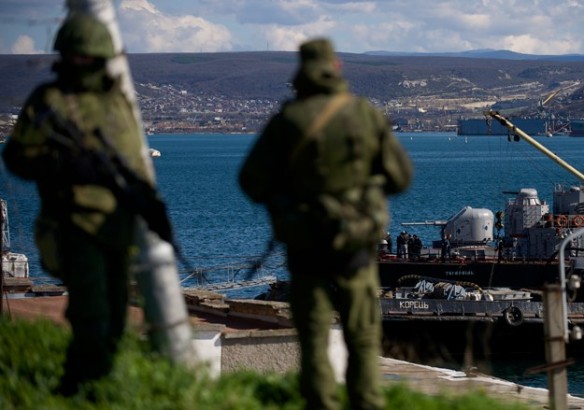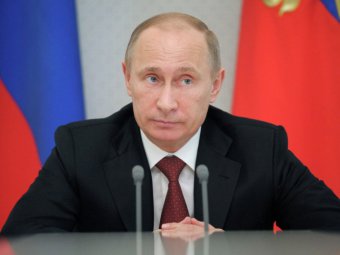The escalating situation in Crimea has had a decidedly negative impact on Russia, and may indicate weakening influence of the Kremlin’s competent advisers.
06.03.2014
Saturday's decision by the Federation Council to send troops to the territory of Crimea has had a number of unquestionably negative consequences. To understand how such moves became possible, it is worth remembering some common features of undemocratic regimes.
The evaluation of policy as wise or mad largely depends on ideological and political-economic perspectives. The advantages of a model in one point of view (e.g., freedom of speech or openness to foreign investments) may be perceived as disadvantages in another. But the consequences of the Crimean escalation are acutely negative, regardless of perspective, for the prospects for the country's development and political orientation.
Having threatened Ukraine with military invasion, Moscow is literally pushing it toward speedy entry into the EU and NATO, which is certainly counter to the interests of Russia. No less dangerous for Russia is aggravating relations with the West. The G8 summit is in jeopardy, the US and the EU have threatened sanctions, and the issue of US energy exports to Europe to reduce dependence on Russia, peripheral until now, is being raised before Congress. The stock market, which crashed on March 3, will regain some lost ground, but the deterioration of the investment climate in this situation is obvious. Finally, rather than demonstrating its power, Russia has exposed itself as an unpredictable player who cannot soberly evaluate its own capabilities.
The hypothetical possibility of a foothold in Crimea is unlikely to compensate for all these costs, and the rationale behind the government’s behavior seems inexplicable. It can, however, can be understood in light of the patterns that characterize authoritarian regimes. According to the research of Konstantin Sonin and Georgy Egorov, repeatedly cited by us, a dictatorship, especially one that is waning or weak, prefers the loyalty of its advisers to their competence. A more competent Vizier is more easily engaged in a conspiracy against the dictator, while a less competent one prefers loyalty to his patron over participation in the conspiracy. ‘Nomenclature cleansing’ and selection for such negative traits, typical of even very dissimilar dictatorships, are not a coincidence, but a trend.
Quarrels with the experts, the growing number of alarmingly poorly-informed speakers representing the official point of view, more primitive propaganda mechanisms—it all looks like confirmation of loyalty at the expense of competence. If so, the threat of war is not a carefully calculated operation, but a result of the weakening influence of competent advisers and a triumph of loyalty. And that’s why demarches like the statement by Sergey Glazyev about sovereign currency or the Federation Council on retaliatory sanctions are not isolated incidents, but a marked tendency.
Source: http://www.vedomosti.ru/opinion/news/23660861/krizis-kompetentnosti#ixzz2vB65Cs00
Translated by Sveta Prishchenko, edited by Robin Rohrback



